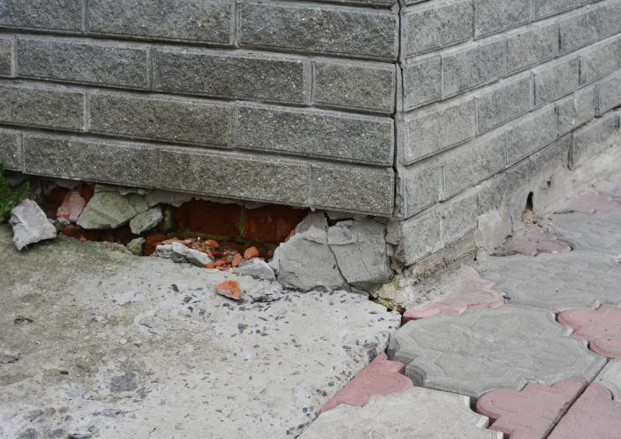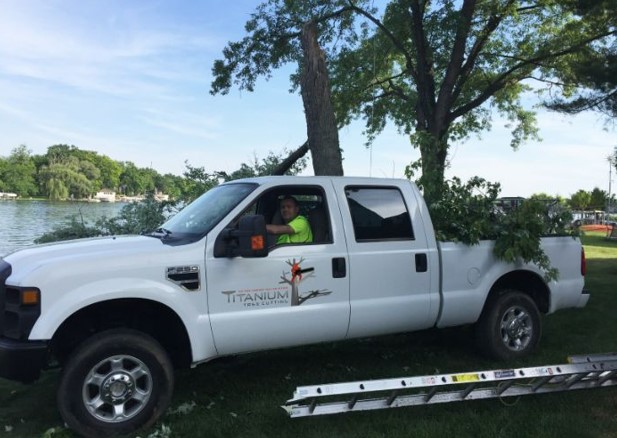Cracks in your foundation can be a cause for concern, but not all cracks are created equal. Understanding when to worry about foundation cracks and when to seek professional help is crucial for maintaining the integrity of your home.
In this blog, we’ll discuss the types of foundation cracks, their causes, and when you should consider foundation crack repair.
The Importance of Foundation Crack Repair
Your home’s foundation is its backbone, supporting everything from the walls to the roof. Over time, various factors can lead to cracks in the foundation. Some cracks are harmless, while others can indicate serious structural issues. Knowing the difference can save you from costly repairs and ensure the safety of your home.
Types of Foundation Cracks
- Hairline Cracks Hairline cracks are very thin and usually appear as the concrete cures. These cracks are typically not a cause for concern and often do not require foundation crack repair. However, monitoring them for changes is important.
- Vertical Cracks Vertical cracks run up and down the wall and are common in many homes. These cracks are usually caused by settling and are often not serious. While they may not require immediate foundation crack repair, it’s essential to keep an eye on them to ensure they do not widen or change.
- Horizontal Cracks Horizontal cracks can be more alarming. They are often caused by soil pressure and can indicate significant structural problems. If you notice horizontal cracks in your foundation, it’s important to seek foundation crack repair as soon as possible.
- Diagonal Cracks Diagonal cracks run at an angle and can vary in severity. They may be caused by settling or shifting due to soil movement. These cracks should be assessed by a professional to determine if foundation crack repair is necessary.
Causes of Foundation Cracks
- Soil Movement Soil movement is one of the most common causes of foundation cracks. Expansive soils that swell when wet and shrink when dry can exert pressure on your foundation, leading to cracks.
- Poor Construction If your home’s foundation was not built correctly, it might be more susceptible to cracking. Issues such as improper concrete mixing, inadequate reinforcement, and poor site preparation can all contribute to foundation problems that require foundation crack repair.
- Water Damage Excess moisture around your foundation can cause the soil to expand and contract, leading to cracks. Poor drainage, plumbing leaks, and heavy rainfall can all contribute to this problem.
- Tree Roots Tree roots growing too close to your home can exert pressure on the foundation, causing it to crack. Keeping large trees at a safe distance from your house can help prevent this issue.
When to Worry About Foundation Cracks
- Width of the Crack As a general rule, cracks less than 1/8 inch wide are usually not a cause for concern. However, cracks wider than 1/4 inch can indicate serious structural issues and should be inspected by a professional.
- Direction of the Crack Horizontal and diagonal cracks are more concerning than vertical cracks. Horizontal cracks signal pressure against the foundation wall, while diagonal cracks indicate foundation movement.
- Growth of the Crack Monitor cracks over time to see if they are growing or changing. If a crack that was once small begins to widen or extend, it’s time to call a professional for an assessment.
- Additional Symptoms Other signs that may accompany foundation cracks include sticking doors and windows, sloping floors, and gaps around window frames. These symptoms can indicate underlying foundation issues that need to be addressed with foundation crack repair.
What to Do About Foundation Cracks
- Monitor and Document Keep a close eye on any cracks you notice. Document their size and location, and check them regularly to see if they change over time. This information can be helpful if you need to consult a professional.
- Improve Drainage Ensure your home has proper drainage to prevent water from accumulating around the foundation. This can involve cleaning gutters, extending downspouts, and grading the landscape away from your home.
- Seek Professional Help If you have concerns about foundation cracks, it’s best to consult a professional. A foundation expert can assess the severity of the cracks and recommend the appropriate foundation crack repair. Early intervention can prevent minor issues from becoming major problems.
- Regular Maintenance Regular maintenance can help prevent foundation problems. This includes monitoring the landscape, ensuring proper drainage, and promptly addressing any signs of water damage.
Conclusion
Foundation cracks can be a source of anxiety for homeowners, but not all cracks are created equal. Understanding the types, causes, and signs of serious foundation issues can help you take the right steps to protect your home. Regular monitoring, improving drainage, and seeking professional advice when needed are key to maintaining a strong, stable foundation.
If you’re concerned about foundation cracks in your home, don’t wait until the problem worsens. At Pro Foundation Fixers, we specialize in identifying and repairing foundation issues to keep your home safe and secure. Contact us today for a thorough inspection and expert foundation crack repair. Visit our website or call us to schedule an appointment and ensure the longevity of your home.

